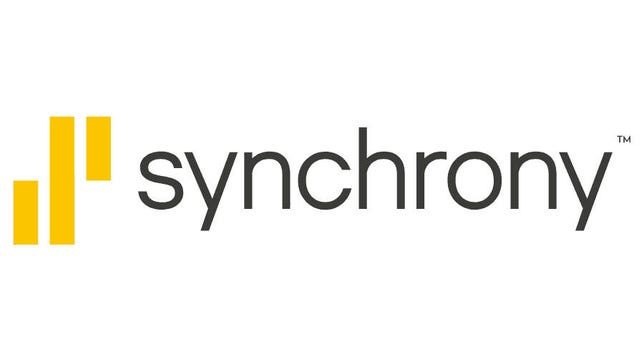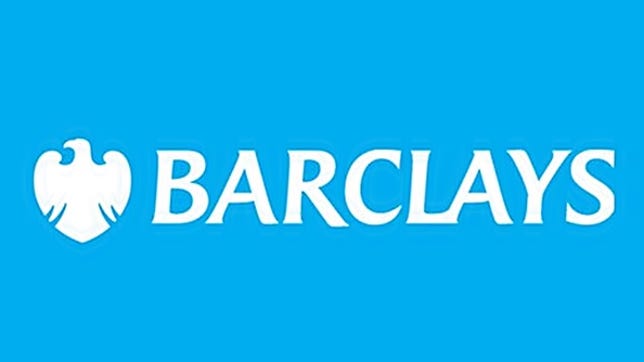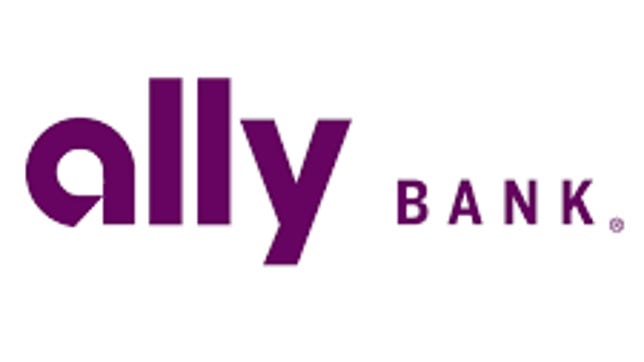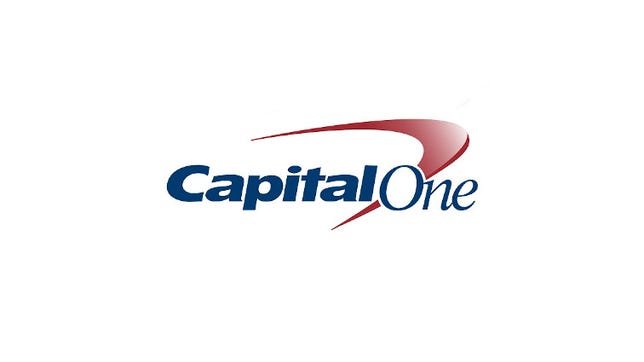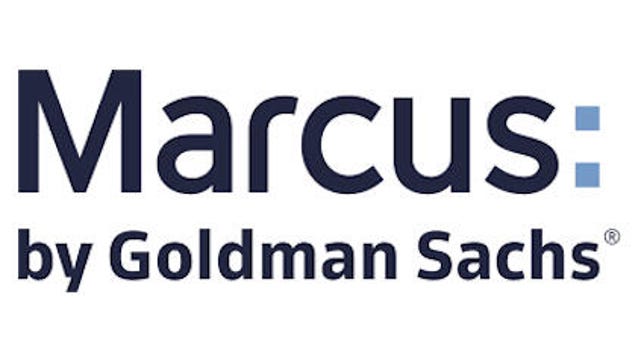[ad_1]
As interest rates continue their upward trajectory, a five-year certificate of deposit should be considered as part of your long-term savings strategy. And timing is key, because financial planners speculate that rates will rise to the highest levels toward the second half of 2023. If so, now’s the time to start reviewing your long-term savings options. And what better way to get the ball rolling than by considering five-year CDs.
Whether you call them 60-month or five-year CDs, these deposit accounts continue to gain popularity as a higher-yielding alternative to standard savings accounts, especially as the Federal Reserve maintains its course to increase the federal funds rate. The most recent rate increase of 0.25%, or 25 basis points, took place in February. The national average interest rate for five-year CDs is 1.20%, compared with 0.23% for savings accounts, according to CNET’s sister site Bankrate.
You can buy a five-year CD at many banks, credit unions and investment firms, and it’s ideal for investors looking to lock in a competitive annual percentage yield, or APY. Investors who opt for a five-year CD benefit from steady growth without risk of losing their money because these accounts are insured by the Federal Deposit Insurance Corporation, or National Credit Union Administration for credit unions, for up to $250,000 per person.
CNET’s picks for the top 5-year CD rates
| Bank | APY | Minimum deposit |
|---|---|---|
| CFG Bank | 4.50% | $500 |
| Quaint Oak Bank | 4.50% | $500 |
| Alliant Credit Union | 4.35% | $1,000 |
| Synchrony | 4.30% | $0 |
| Barclays | 4.30% | $0 |
| Ally | 4.25% | $0 |
| Bread Savings | 4.25% | $1,500 |
| Capital One | 4.10% | $0 |
| Discover Bank | 4.10% | $2,500 |
| Marcus by Goldman Sachs | 3.80% | $500 |
Note: Annual percentage yields, or APYs, shown are as of March 9, 2023. CNET’s editorial team updates this information regularly, typically biweekly. APYs may have changed since they were last updated and may vary by region for some products.
More details on the top 5-year CD rates
CFG Bank
- APY: 4.50%
- Minimum deposit: $500
- Early withdrawal penalty: 180 days of interest
- About the bank: CFG Bank is a Maryland-based community bank that offers competitive rates on CDs, with reasonable deposits required to open accounts, making them accessible to a wide range of savers nationwide.
Quaint Oak Bank
- APY: 4.50%
- Minimum deposit: $500
- Early withdrawal penalty: 913 days (about 30 months) of interest on the amount withdrawn plus any accrued interest.
- About the bank: Quaint Oak Bank has physical locations in Pennsylvania, but offers basic banking products such as savings accounts, CDs and mortgages online. Its competitive rates on CDs and low minimum deposits make Quaint Oak Bank a contender to explore among larger, well-known banks. It does, however, have one of the most expensive early withdrawal penalties of the group we’ve evaluated.
James Martin/CNET
- APY: 4.35%
- Minimum deposit: $1,000
- Early withdrawal penalty: Up to 180 days of dividends
About the bank: Alliant is one the largest credit unions in the US, with $15 billion in assets. Membership eligibility is open to employees of more than 250 partner organizations throughout the US, such as United Airlines, as well as residents of Chicago, immediate family members of current Alliant members or those who are members of Foster Care to Success.
Synchrony
- APY: 4.30%
- Minimum deposit: $0
- Early withdrawal penalty: 365 days of simple interest at the current rate
- About the bank: Synchrony is an online-only bank that takes advantage of limited overhead to offer attractive rates for deposit accounts. Transactions can be handled via its website or mobile app. Synchrony Bank also offers additional CD types such as bump-up or no-penalty that provide more flexibility.
Barclays
- APY: 4.30%
- Minimum deposit: $0
- Early withdrawal penalty: 180 days of simple interest on the dollar amount withdrawn
- About the bank: Barclays Bank Delaware is the official name of this London-based bank’s US operation. Domestically, Barclays is an online bank that offers a limited selection of deposit products online. The bank doesn’t require a minimum deposit to open a CD, but the account must be funded within 14 business days. It only offers a standard CD with terms ranging from one to five years — all of which earn highly competitive APYs.
Ally
- APY: 4.25%
- Minimum deposit: $0
- Early withdrawal penalty: 150 days of interest
- About the bank: Ally is another online-only bank that offers a robust set of deposit products, loans and services. The bank also offers bump-up CDs (those that adjust to a higher APY if available) and no-penalty CDs. You can handle all of your banking needs through its mobile app for free via the Allpoint ATM network. There are no fees with any accounts, and 24/7 customer support via phone, chat or email.
Bread Financial
- APY: 4.25%
- Minimum deposit: $1,500
- Early withdrawal penalty: 180 days of simple interest
About the bank: Bread Financial formed from Alliance Data Systems, a marketing and private-label credit card company that still provides cards for such brands as Victoria’s Secret, J. Crew and Pottery Barn. Bread Savings, formerly known as Comenity Direct, is an online-only banking subsidiary that focuses on credit cards, savings accounts, loans and CDs.
Capital One
- APY: 4.10%
- Minimum deposit: $0
- Early withdrawal penalty: Six months of interest
- About the bank: Capital One, the 10th largest bank in the US, is an online bank with physical locations that you can visit in nine states across the eastern and southern US. It has also expanded the bank branch concept into a coffee shop-style Capital One Café, with some banking services available in addition to treats, free Wi-Fi and a workspace that’s open to the public.
Discover
- APY: 4.10%
- Minimum deposit: $2,500
- Early withdrawal penalty: Nine months of simple interest
About the bank: Discover is an online financial services company that offers products such as deposit accounts, credit cards, personal loans and student loans. It offers a wide range of high-yield CD terms from three months to 10 years.
Marcus by Goldman Sachs
- APY: 3.80%
- Minimum deposit: $500
- Early withdrawal penalty: 270 days of interest
- About the bank: Marcus by Goldman Sachs is the online banking arm of the venerable New York-based multinational investment bank and financial services firm. While this is the seventh-largest bank in the US, all deposits must be electronically transferred using its mobile app because there are no branches or ATMs available.
What is a 5-year CD?
A five-year CD is a type of savings account that enables you to hold your money over a period of time, in this case five years, while earning a fixed rate of interest. To compensate for tying your funds up for that stretch of time, the bank or credit union offering the account will pay a higher rate of interest than a traditional savings account. That rate typically compounds either daily or monthly.
Once you’ve reached the five-year milestone, or maturity, you can withdraw your funds, along with the accrued interest, penalty free. CDs typically have a grace period of seven to 10 days after maturity that gives you the time to decide if you want to withdraw your money, move your money to another type of CD or let your money (with accrued interest) remain in the same five-year CD. However, should you need to withdraw your money before the maturity date, you’ll be charged a penalty, usually a portion of accrued interest.
How does a 5-year CD earn money?
A CD earns interest based on the APY, the rate that’s fixed as of the date of purchase. While every bank and credit union determines its own advertised APYs, most financial institutions generally follow the direction of the federal funds rate. The Federal Reserve has continued to increase rates in 2023 in an effort to control inflation. As such, APYs for five-year CDs continue to increase in kind.
Banks and credit unions use the money deposited in CD accounts to fund their loan operations. The profits earned by charging higher rates on loans are used to pay higher APYs on your money in CD accounts. Money deposited into a five-year CD account is money that shouldn’t be withdrawn until the term matures. Otherwise, you’ll incur penalties, reducing your overall gains. Early withdrawal penalties vary among banks. CDs highlighted above typically impose a penalty of between 180 and 365 days of simple interest if money is withdrawn too soon.
How to choose a 5-year CD
Even if you know you won’t need the money for five years or more, some financial experts urge you to consider other options in addition to a five-year CD.
Here’s why: Locking in a five-year CD rate could mean you’ll miss out on the bigger returns banks may potentially offer in the near future. Once you open a CD, you can only move your money out before the term ends by paying an early withdrawal penalty. This penalty can vary but is usually a portion of your interest earned.
A five-year CD is a safe option for a portion of your savings to earn a fixed rate of interest with little-to-no risk of losing money. CDs provide an exact interest rate that won’t change in exchange for agreeing to invest your money for a specific period of time.
When deciding on the best five-year CD for your portfolio, consider the following factors:
- Minimum deposit: What is the initial deposit required to open the account?
- Term: How long can you leave the money deposited in a CD account?
- APY: Look for the highest yield available for the term you’ve selected.
- Type: Determine the type of CD that best fits your needs.
- Withdrawal penalties: What are the early withdrawal penalties associated with the CD you’ve chosen?
- Compound schedules: How often is interest added to the principal balance, thus increasing the account balance? (The interest on CDs generally compounds daily or monthly.)
- Insurance: Confirm that the bank or credit union issuing the CD is federally insured by the Federal Deposit Insurance Corporation or National Credit Union Administration, respectively. Each agency insures accounts for up to $250,000 per depositor against loss or bank failure.
Pros & cons of 5-year CDs
Pros
- CDs offer consistent, fixed-rate growth.
- A five-year CD generally earns a much higher APY than a savings or money market account.
- A five-year CD purchased through insured banks and credit unions is insured for up to $250,000.
Cons
- The deposit will incur a penalty, the loss of up to 365 days of interest earned, for example, if withdrawn before the CD reaches the maturity date.
- A five-year CD is locked into the interest rate set at the time of purchase. Five years is a long time and rates may continue to rise, limiting your ability to capitalize on higher gains.
- CDs restrict access to money that may be needed in emergency situations. Make sure money used for a five-year CD can remain in place for the term’s duration.
Are 5-year CD rates going up?
A CD’s APY is tied directly to the Federal Reserve’s federal funds benchmark rate. That rate has increased eight times since 2022. You should shop around to find the most competitive rates for CDs.
Some banks offer bump-up or step-up CDs that will adjust the APY to match market conditions. Purchasing a CD with a five-year term can lock you out of future gains if the interest rates continue to rise. These specialty CDs bridge the gap between rising interest rates and current advertised prices.
Is a 5-year CD better than other investment options?
A five-year CD can provide better returns compared with savings accounts, however, access to the deposited funds will be limited for a long period of time. You have immediate access to money in a savings account, but your money earns less interest. This will negatively impact the long-term value of your money in this era of historically high inflation rates.
Money market accounts may offer higher rates than a traditional savings account with check writing privileges, but rates are still lower than CDs in most cases. A five-year CD, for example, will likely earn the highest APY, however, access to your money without incurring penalties will be limited for a much longer period of time. Series I bonds are another safe investment option that restricts access for a fixed period of time of one year. I bonds are outpacing inflation and are government-backed. Each account type offers pros and cons that should be considered when determining which option is best for your needs.
How to open a 5-year CD
A five-year CD can be purchased from most retail banks and credit unions. To open a five-year CD, complete the application process. This is generally a simple process and is available through a website or mobile app.
To complete the process, you’ll need to verify your identity and deposit at least the minimum initial deposit required to open the account. The deposit can take place in person for institutions with physical branches or through electronic transfers.
FAQs
What if I want to withdraw sooner than 5 years?
If you withdraw money before your CD matures, you’ll pay an early withdrawal penalty. You can forfeit between 180 and 365 days worth of interest on a five-year CD. The exact amount depends on your bank.
Is my rate locked in for the entire period?
Yes. If you choose a traditional CD, you’ll have a fixed interest rate for the duration of your CD term. When your CD matures, you can roll the money into a new CD that may have a better interest rate.
Can a 5-year CD lose value?
Unless you’re buying a CD offered by a brokerage account, CDs bought through a bank or credit union are insured by the Federal Deposit Insurance Corporation or National Credit Union Administration for up to $250,000 per person. Any interest compounded is also covered by the insurance, making it a low-risk investment.
What are alternatives to a 5-year CD?
CD terms typically vary from three months to five years. Generally, CDs with longer terms of maturity pay higher interest rates. Additionally, there are other safe savings accounts to consider, such as high-yield savings accounts or I bonds.
Methodology
CNET reviews CD rates based on the latest APY information from issuer websites. We evaluated CD rates from more than 50 banks, credit unions and financial companies. We selected the CDs with the highest APY for five-year terms from among the organizations we surveyed, and considered rates for shorter terms if five-year terms were identical or unavailable.
Banks surveyed include: Alliant Credit Union, Ally Bank, America First Credit Union, American Express National Bank, Axos Bank, Bank of America, Bank of the West, Bank5 Connect, Barclays, BMO Harris, Bread Savings, BrioDirect, Capital One, CFG Community Bank, Citizens Access, Colorado Federal Savings Bank, Connexus Credit Union, Consumers Credit Union, Discover Bank, First Internet Bank of Indiana, First Tech Federal Credit Union, FNBO Direct, GO2bank, Golden 1 Credit Union, HSBC Bank, Huntington Bank, Lake Michigan Credit Union, LendingClub Bank, Live Oak Bank, M&T Bank, Marcus by Goldman Sachs, Merrick Bank, Nationwide (by Axos), Navy Federal Credit Union, NBKC, OneUnited Bank, Pentagon Federal Credit Union, PNC, Popular Direct, PurePoint Financial, Quontic Bank, Rising Bank, Salem Five Direct, Sallie Mae Bank, Santander Bank, Synchrony Bank, TAB Bank, TD Bank, TIAA Bank, Truist Bank, U.S. Bank, UFB Direct, Union Bank, USAA Bank, Vio Bank and Wells Fargo.
This article includes some material that was previously published on NextAdvisor, a CNET Money sister site that was also owned by Red Ventures and which has merged with CNET Money. It has been edited and updated by CNET Money editors.
The editorial content on this page is based solely on objective, independent assessments by our writers and is not influenced by advertising or partnerships. It has not been provided or commissioned by any third party. However, we may receive compensation when you click on links to products or services offered by our partners.
[ad_2]




